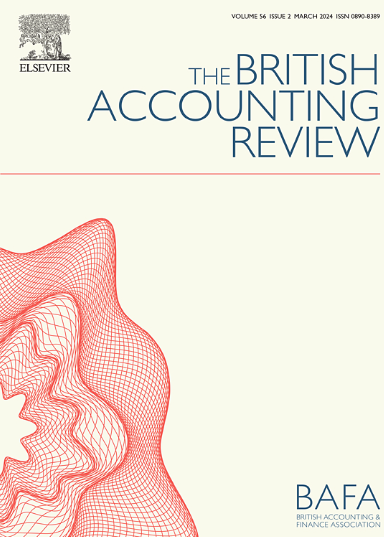Do client protection principles matter for the economic and social performance of microfinance institutions?
IF 9.4
3区 管理学
Q1 BUSINESS, FINANCE
引用次数: 0
Abstract
This study investigates the influence of client protection principles (CPPs) in lending practice on the economic and social performance of Microfinance Institutions (MFIs). The demand for ethical and fair treatment of microfinance borrowers has increased in recent years after several incidences of exploiting clients in different parts of the world. In response to this call, many MFIs adopted CPPs in lending operations to borrowers. However, there is a debate about whether adopting CPPs enhances the economic and social performance of MFIs. We empirically test this using a unique panel dataset of 1015 MFIs (5650 MFI-year observations) operating in 93 countries from 2007 to 2018. We find a positive impact of client protection on social performance in the short- and long-run. The impact of client protection on financial performance is negative in the short run, but the effect diminishes in the long run. Our documented findings are robust across a battery of robustness tests and account for endogeneity using propensity score matching, two-stage least squares estimation, and a two-step system generalized method of moments. Detailed analyses show that not all the client protection principles have a significant impact on MFI performance. Additional analyses show that the influence of CPPs on social performance is more pronounced in larger than smaller MFIs. Also, adopting CPPs increases the clients' access to savings and the MFIs’ access to subsidized funds.
客户保护原则对小额信贷机构的经济和社会绩效有影响吗?
本研究探讨贷款实务中客户保护原则(CPPs)对小额信贷机构(MFIs)经济和社会绩效的影响。近年来,在世界各地发生了几起剥削客户的事件后,对小额信贷借款人的道德和公平待遇的要求有所增加。为了响应这一呼吁,许多小额信贷机构在向借款人提供贷款业务时采用了cpp。然而,关于采用cps是否能提高小额信贷机构的经济和社会绩效,存在争议。我们利用2007年至2018年在93个国家运营的1015家小额信贷机构(5650家小额信贷机构年度观察数据)的独特面板数据集对这一点进行了实证检验。我们发现客户保护在短期和长期对社会绩效都有积极的影响。客户保护对财务绩效的影响在短期内是负面的,但从长期来看,这种影响会减弱。我们记录的研究结果在一系列稳健性测试中是稳健性的,并使用倾向评分匹配、两阶段最小二乘估计和两步系统广义矩法来解释内生性。详细分析表明,并不是所有的客户保护原则都对小额信贷机构的绩效产生重大影响。其他分析表明,cps对社会绩效的影响在较大的小额信贷机构中比在较小的小额信贷机构中更为明显。此外,采用cpp增加了客户的储蓄机会和小额信贷机构获得补贴资金的机会。
本文章由计算机程序翻译,如有差异,请以英文原文为准。
求助全文
约1分钟内获得全文
求助全文
来源期刊

British Accounting Review
BUSINESS, FINANCE-
CiteScore
8.60
自引率
3.90%
发文量
39
审稿时长
76 days
期刊介绍:
The British Accounting Review*is pleased to publish original scholarly papers across the whole spectrum of accounting and finance. The journal is eclectic and pluralistic and contributions are welcomed across a wide range of research methodologies (e.g. analytical, archival, experimental, survey and qualitative case methods) and topics (e.g. financial accounting, management accounting, finance and financial management, auditing, public sector accounting, social and environmental accounting; accounting education and accounting history), evidence from UK and non-UK sources are equally acceptable.
 求助内容:
求助内容: 应助结果提醒方式:
应助结果提醒方式:


